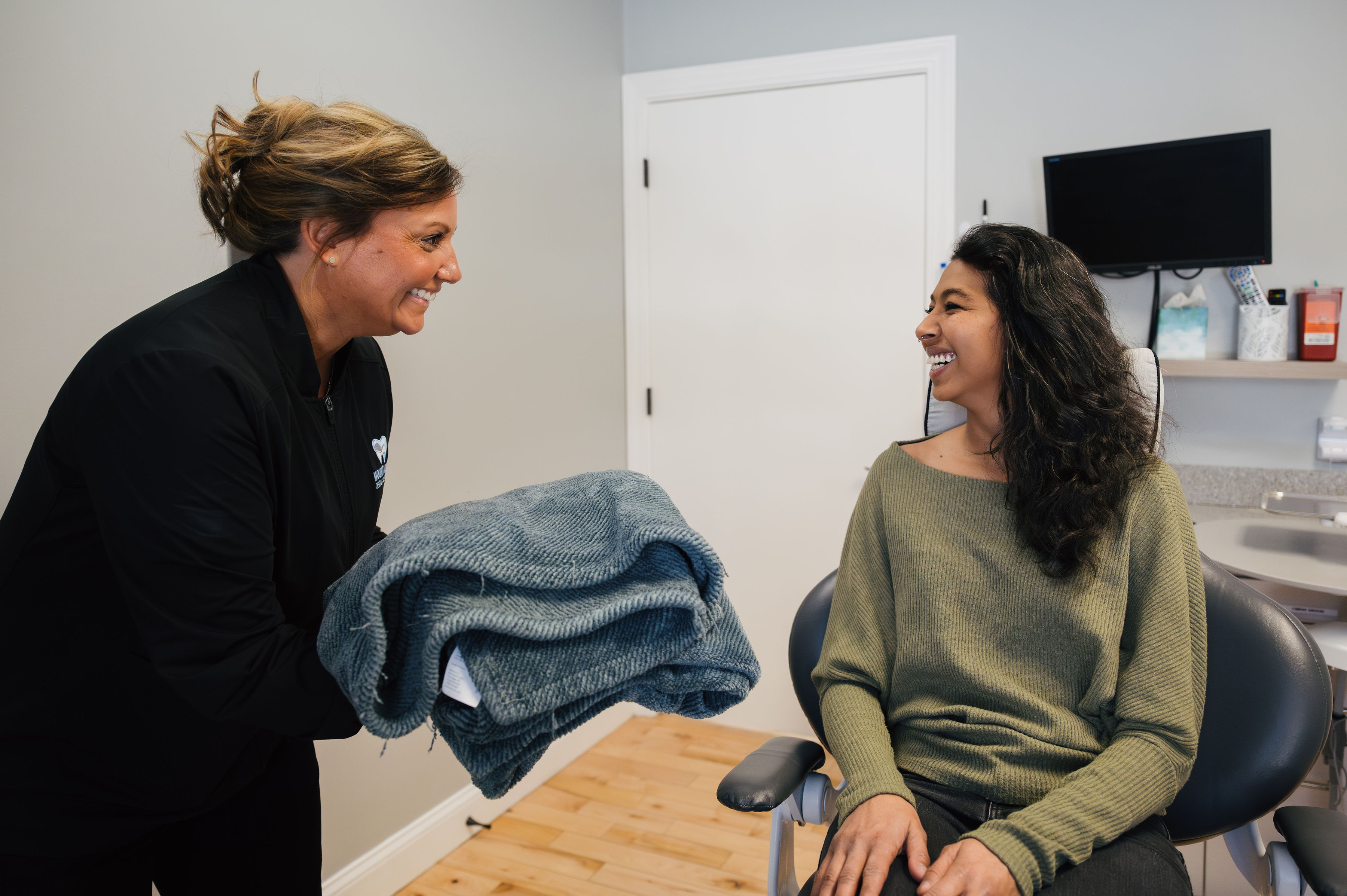Types of Sedation Dentistry

Understanding Sedation Dentistry: Helping You Stay Calm and Comfortable
Preventative care is essential for your overall health. While yearly physicals and bloodwork are common, many people overlook the importance of regular dental visits. Seeing your dentist every few months is a crucial part of maintaining your health—especially if you want to avoid complicated procedures.
For some patients, especially those who avoid the dentist or have extensive dental work, sedation dentistry can make treatments easier and more comfortable.
What Is Sedation Dentistry?
Sedation dentistry refers to techniques used to help patients feel calm and relaxed during dental procedures. Sedation can range from mild relaxation to deep sleep, depending on the type used and the patient’s needs.
There are two main categories of sedation:
- Conscious sedation: You remain awake but relaxed.
- Deep sedation or general anesthesia: You are asleep during the procedure.
Why Is Sedation Important?
Some dental procedures can be uncomfortable or anxiety-provoking. Sedation offers a safe and effective way to help you get through treatments you might otherwise avoid.
Without sedation, patients might jerk or pull away during treatment, which can complicate dental work and even cause injury.
Types of Sedation Dentistry
Your dentist will discuss sedation options with you based on your medical history and the dental work planned. Here are the most common types:
Local Anesthesia
This is the standard numbness applied to a small area, keeping you awake but pain-free during procedures like fillings, crowns, or root canals. It’s often delivered as a gel on the gums or by injection.
General Anesthesia
Used for extensive dental work or when a patient experiences severe anxiety, general anesthesia puts you to sleep completely. It’s administered by trained professionals, sometimes via IV or face mask, allowing the dentist to work efficiently without causing distress.
General anesthesia may be appropriate for wisdom tooth removal or multiple complex procedures in one session.
Is General Anesthesia Right for You?
Not everyone is a candidate for general anesthesia. If you have certain medical conditions like neurological issues or acid reflux, or if you have a history of allergic reactions to anesthetics, be sure to tell your dentist.
Nitrous Oxide (Laughing Gas)
Nitrous oxide is an inhaled sedative mixed with oxygen through a mask. It helps you relax during treatment and wears off quickly after the procedure. It’s a great option for patients afraid of needles or who want mild sedation.
Oral Sedation
If you don’t need to be fully asleep, oral sedatives like Halcion (similar to Valium) can be taken before your appointment. These medications relax you for several hours, making dental work easier to tolerate. You’ll remain conscious and able to respond but may feel drowsy afterward, so a ride home is usually necessary.
IV Sedation
For deeper sedation, medications similar to oral sedatives can be administered through an IV. This method allows the dentist to adjust sedation levels during treatment. It’s ideal for patients with severe dental anxiety or strong gag reflexes.
What to Expect and How to Prepare
Your dentist will carefully monitor your health during sedation and adjust as needed to keep you safe and comfortable.
If you’re nervous about sedation dentistry, don’t let fear keep you from getting necessary care. Talk openly with your dentist about your concerns and ask which sedation option suits you best.
Safety and Approval
All sedation medications used in dentistry are approved by the Food and Drug Administration (FDA) and the American Dental Association (ADA), ensuring their safety and effectiveness.
Your dentist will recommend the sedation type best suited to your health, treatment, and insurance coverage.
Schedule Your Sedation Dentistry Consultation Today
Our goal is to provide you with safe, comfortable dental care. If sedation dentistry or preventive care is something you’re considering, now is the perfect time to make an appointment.
Let us help you overcome dental anxiety and get the care you need with confidence and ease.
We can’t wait to connect!
Call 828-265-1112 or request an appointment online to set up your first visit. We’ll be in touch soon.
